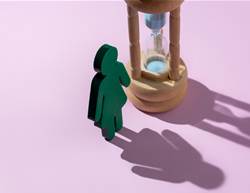Taking care of your health shouldn’t be complicated—or expensive. Yet for decades, Australian women have faced high out-of-pocket costs, long wait times, and limited access to specialist care for essential health services.
Now, that’s about to change.
The Albanese Government is investing $573.3 million into cheaper contraception, better menopause care, expanded endometriosis treatment, and pharmacy access for UTIs and birth control. This means lower costs, more choices, and easier access to care.
Here’s everything you need to know about how these changes could affect you—and how to take advantage of them.
Contraceptives Are Getting Cheaper and Easier to Access
If you’ve ever winced at the price of your birth control, relief is on the way.
For the first time in 30 years, new oral contraceptive pills—including Yaz® and Yasmin®—will be added to the Pharmaceutical Benefits Scheme (PBS).
How much will you save?
- Current cost: $380 per year
- New cost from 1 March 2025: $126.40 per year
- Concession cardholders: Just $30.80 per year
If you use long-term birth control (IUDs or implants), you’ll also benefit from:
- Up to $400 in out-of-pocket savings each year
- 150% increase in Medicare rebates for insertion and removal
- More bulk billing options, reducing upfront costs
To ensure healthcare providers can meet demand, the government is also investing $25.1 million in eight Centres of Training Excellence, where doctors and nurses will be trained in contraceptive procedures.
Menopause Support: More Help, Less Cost
If you’ve ever been told to “just deal with it” when it comes to menopause symptoms, you’re not alone. One in five Australian women experiences symptoms severe enough to impact their daily lives, yet specialist care is often expensive and hard to find.
From 1 July 2025, new Medicare rebates for menopause health assessments will make it easier—and more affordable—to get the support you need.
What's changing?
- Medicare-covered menopause consultations for better access to care
- National clinical guidelines to help GPs diagnose and treat menopause symptoms effectively
- Specialised training for health professionals, ensuring they have up-to-date knowledge
- A national awareness campaign so more women can recognise symptoms and seek treatment
In addition, endometriosis and pelvic pain clinics will now expand their services to provide menopause support, ensuring more women can access specialist care in one place.
Hormone Therapy Just Became More Affordable
For the first time in over 20 years, new menopausal hormone therapies will be listed on the PBS, meaning more affordable access to essential treatment options.
Newly listed medications (effective 1 March 2025):
- Estrogel® (estradiol)
- Prometrium® (progesterone)
- Estrogel® Pro (estradiol + progesterone)
How much will you save?
- Current cost: $400–$670 per year
- New cost: $31.60 per month (or $7.70 per month for concession cardholders)
This not only reduces costs for around 150,000 women per year but also ensures better availability of these treatments, addressing recent shortages in hormone therapy medications.
Expanded Endometriosis & Pelvic Pain Clinics
Endometriosis is a chronic condition affecting one in nine Australian women, yet diagnosis and treatment delays are common.
The government’s $127 million investment in endometriosis care continues, with the addition of 11 more clinics, bringing the total to 33 endometriosis and pelvic pain clinics nationwide.
What’s new?
- More locations mean shorter wait times and better access to care
- Expanded services, including treatment for perimenopause and menopause symptoms
- Specialist support, ensuring early diagnosis and effective pain management
This expansion means more women can access expert care sooner without having to navigate long referral processes.
Pharmacy Access for UTIs and Contraceptives
If you’ve ever waited days for a GP appointment just to get a prescription for a UTI, you know how frustrating the process can be.
Starting early 2026, a national pharmacy trial will allow 250,000 concession cardholders to consult a trained pharmacist for free for uncomplicated UTI treatment and access over-the-counter contraceptives without needing a GP prescription.
This initiative aims to reduce wait times, lower costs, and free up GP appointments for more complex cases.
How to Take Advantage of These Changes
This $573.3 million investment is designed to make healthcare easier, cheaper, and more accessible for Australian women. Whether it’s lower costs for birth control, better menopause support, or faster access to UTI treatment, these changes reflect a growing commitment to prioritising women’s health.
By taking advantage of these new benefits, women across Australia can expect better care, greater choice, and more financial relief when it comes to essential healthcare needs.
Key Dates to Remember:
- 1 March 2025 – PBS listings for new contraceptive pills and menopausal hormone therapy take effect
- 1 July 2025 – New Medicare rebates for menopause health assessments become available
- Early 2026 – Pharmacy trials for UTI treatment and over-the-counter contraceptives begin
Have questions about how these changes will affect you? Visit health.gov.au for more information.
_(1).jpg&h=630&w=1120&c=1&s=1)







.png&h=193&w=250&c=1&s=1)
.png&h=193&w=250&c=1&s=1)
